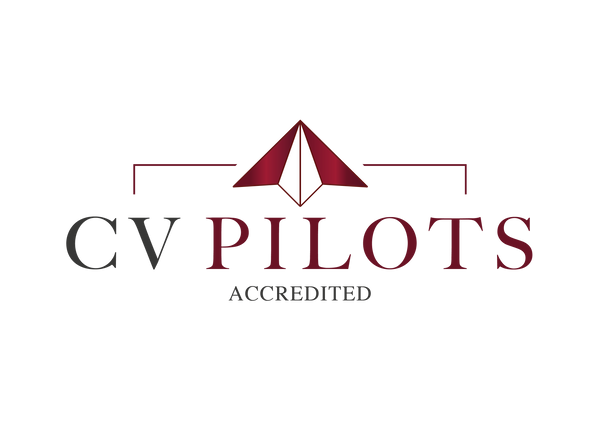
How to Write Achievement-Based CV Bullet Points | CV Pilots
Follow Our Simple Formula for Achievement-Based Bullet Points
One of the biggest CV mistakes candidates make is turning their work history into a job description rather than a record of achievements.
Recruiters already know the tasks associated with your job title. What they want to see is evidence of the impact you made — and why you are stronger than the other hundred people who could “do the job.”
When you shift your bullet points from responsibilities to achievements, you not only stand out from similar applicants but also meet the expectations of executive recruiters who are scanning for clear, measurable results.
This guide will show you a simple formula that transforms your CV bullet points into powerful, results-driven statements.
If you’re ready to take the guesswork out of job applications and
give yourself a genuine competitive edge, our CV Reviews and
CV Template Bundles are designed to help you stand out in even
the toughest hiring markets.
CV Reviews – Save £60
If you’re not sure your CV is truly working for you, our
Professional CV Review Service provides in-depth, recruiter-level
feedback on content, structure, and ATS compatibility. You’ll receive
a personalised action plan showing exactly what’s holding you back
and how to fix it, so you can apply with confidence. Use discount code
PCVR60 at checkout to save £60 and give your next application the
competitive edge it deserves.
CV Template Bundles – Save £40
Prefer to write your own CV but want a proven framework? Our
CV Template Bundles include an ATS-friendly, recruiter-approved
template, plus our storytelling framework, metrics tracker, CV checklist,
and scorecard - everything you need to create a document that sells
your skills and achievements. Use discount code CVTB40 to get
£40 off and start building a CV that gets noticed for all the right
reasons.
These tools pull back the curtain on the hiring process, cutting
through the smoke and mirrors so you understand exactly what
employers and ATS systems are really looking for
The Two Types of CV Bullet Points
On any CV, you’ll need a mix of both task-based and achievement-based bullet points:
1) Task-Based Bullet Points
These outline your core responsibilities, giving context to your role. They answer: “What was this person expected to do?”
Examples:
- Prepared tax filings
- Drafted investment memoranda
- Conducted interviews
Task-based points are fine in moderation, but they should never dominate your CV.
2) Achievement-Based Bullet Points
These highlight what you actually delivered. They show the recruiter your value-add, answering: “Why should I hire this person?”
Examples (weak vs strong):
- Weak (task only): Wrote consulting reports
- Strong (achievement-based): Wrote consulting reports analysing market suitability for new hotels, resulting in five new properties being added to the company’s portfolio
Achievement-based bullet points are what will get you interviews.
The Formula for Achievement-Based Bullet Points
Every strong bullet point follows this simple structure:
Main Point + Example + Explanation
Step 1: Main Point
Identify your day-to-day responsibility.
- Recruited and interviewed candidates
- Made sales calls
- Analysed profit and loss statements
Step 2: Example
Add specifics that place your responsibility into context.
- Recruited and interviewed candidates for entry-level analyst roles
- Made sales calls to current and potential high-net-worth clients
Step 3: Explanation / Impact
Finish with the result or purpose of your work. Where possible, quantify it.
- Recruited and interviewed candidates for entry-level analyst roles, helping expand the department by 20%
- Made sales calls to high-net-worth clients, consistently exceeding sales goals by 15%
- Analysed P&L statements for the beverage division to identify discrepancies, improving reporting accuracy and cutting costs by 10%
This structure ensures every bullet point answers the recruiter’s unspoken question: “So what?”
How Many Bullet Points Should Each Role Have?
Aim for 4–6 bullet points per role, focusing on the most recent 5–10 years of your career.
- Senior, recent roles → Most detail (achievements, metrics, leadership impact).
- Older or less relevant roles → Condense to 2–3 points, or list in an Early Career section.
Remember: a CV should not be an autobiography. It’s a highlight reel.
Questions to Unlock Achievements (When You’re Stuck)
If you’re struggling to go beyond basic responsibilities, ask yourself:
- How many people did I manage, and at what level?
- Did I increase revenue, save costs, or improve efficiency? By how much?
- Did I implement a process, system, or tool that had measurable impact?
- Did I deliver projects under budget or ahead of schedule?
- Did I build partnerships, win clients, or grow accounts?
- Was I recognised with awards, promotions, or commendations?
- Did I train or mentor others, and what was the result?
Even one quantified detail can turn a bland task into a compelling achievement.
In Summary
Your CV is not just a list of duties — it’s a marketing document. By using the achievement-based bullet point formula, you’ll:
- Differentiate yourself from candidates with similar job titles
- Demonstrate clear value to hiring managers and recruiters
- Improve your chances of making it past ATS filters
- Walk into interviews with concrete, ready-to-use examples
Craft each bullet point with intention, and you’ll move from blending in to standing out.
To find out more, visit our website www.cvpilots.co.uk If you have any further questions, you can either book a consultation call with one of our team, or get in touch via email on team@cvpilots.co.uk

Once you are happy with your bullet points, check out the following articles to make sure that you aren't committing any CV writing faux pas:
